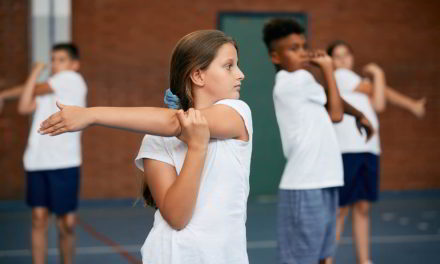Some schools may decide that live moderation just isn’t for them. Although significantly more work is required throughout the year than it would be for a live moderation, pupils may find it easier to achieve their full potential as only performances the candidates are happy with will be submitted to the moderator.
This method of moderation is particularly popular with those students of a nervous disposition or in schools with limited facilities.
Below are 5 ways to prepare for a successful remote/ pre-recorded moderation:
1. Footage needs to be secure
Ensure the footage meets the examination board’s safeguarding standards. Recently, some exam boards are now requiring that all footage is encrypted with a password supplied to the centre early in the academic year. Exam boards will also reject links to external websites (E.g. youtube) for both safeguarding and reliability reasons. All footage must be downloaded onto a storage device but, beware, you may not get this device back!
2. Record performances IN FULL
Evidence submitted to the exam board should not be edited in any way. Full halves/ quarters/ innings should be submitted in their entirety. This even applies to golf. The camcorder should remain running for the duration of the hole- You can choose to use video editing software to speed up the walk between shots which is strongly recommended to save space on any storage device! Any footage that has been edited may be rejected by the exam board.
3. Showcase the entire skill phase
Ensure any video evidence shows the performance of the skill in its entirety. This means that the preparation phase, execution phase and the outcome of any skill should all be evident. This can be quite hard to record in certain sports. Examples of good practice include standing at one end of a tennis court in an elevated position if possible (From here you can see the skill performance as well as where the ball lands whilst keeping the camera still.) or standing on the side of the football pitch that the candidate spends most time.
The camera should remain as still as possible throughout with smooth movements when required- you will need to have a practice prior to recording as this is not easy!
4. Align performance capabilities
Ensure the performer is playing at the correct level. See point 1 in 5 Ways to prepare for a live GCSE/ A-Level moderation.
5. Cover all skills possible
Once you and the student have decided what footage will be submitted, the candidate should produce a timeline highlighting core (and advanced) skills. This will help both the moderator and the candidate to ensure that no skills have been missed out of their final submission. Make sure students use the skills listed in the specification to complete this task.
Do remember that moderations can be both a mixture of live and pre-recorded and this is the route that many centres go down. Whatever you choose to do, good luck!
For more information on the specific requirements of your examination board please speak to your exams officer who should have received all of the essential information or visit your examination board website.










